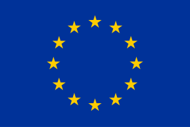Interested in organic contaminants in recycled fertilizers? Register to RELACS webinar series! 3 March 2021 – 22 April 2021, online

The area under organic production is growing, leading to an increased demand for nutrient sources suitable for organic agriculture. FiBL is organizing a webinar series in the frame of the RELACS project, themed “Organic contaminants in recycled fertilizers and their fate in soil-plant systems: Knowledge gathering and discussion with organic stakeholders”.
The workshop, taking place March-April 2021 in five two-hour sessions, brings together researchers in nutrient recycling and organic stakeholders.
The webinar series will be the opportunity to gather current knowledge on potential risks associated with using recycled fertilizers, learn about their fate in soil–plant systems, examine approaches for a sound risk assessment and discuss options for closing nutrient cycles between society and agriculture as well as their acceptability for organic agriculture.
Short overview of the webinar series
- Wednesday 3 March: Introduction – Setting the scene
- Thursday 11 March: Organic contaminants and other risks
- Wednesday 17 March: How to recycle nutrients from household wastes and the food industry
- Monday 12 April: How to recycle nutrients from human excreta
- Thursday 22 April: Socioeconomy and final discussion
Register to the webinar series by emailing [email protected].
Have a look at the workshop description and the full programme.
Visit the RELACS website to learn more and follow the latest project’s developments on Twitter and Facebook using @RELACSeu and #RELACSeu.
RELACS seeks to promote the development and adoption of environmentally safe and economically viable tools and technologies to reduce the use of external inputs in organic farming systems. IFOAM Organics Europe is responsible for the communication and dissemination of project results as well as the coordination of the science-practice-policy dialogue.



